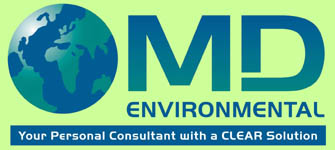The issue of air quality concerns business when dealing with process operations, such as manufacturing and production. The process operations must meet certain limit or operating conditions, according to local, state and federal air quality rule and regulations.
The South Coast Air Quality Management District, California Air Resource Control Board, and California Environmental Protection Agency administrate the air quality rules and regulations, which govern most of Southern California. Such administrations require business owners and operators to become aware and understand the goals of achieving clean air within the South Coast region, through air pollution reduction planing and reporting measures.
MD Environmental provides effective solution strategies such as actual emission factor testing and optimization for business flexibility coupled with solid regulatory compliance.
Once your business achieves compliance, MD Environmental can assist you on a contractual basis to maintain air quality compliance continuous and without disruption from inevitable staff reorganizations and turnover. |
- Rule 219 Permit Exemption Registration
- Statewide Portable Equipment Registration
- District Permit to Construct and Operate Application for New Construction, Existing Equipment, Equipment Modification, Change of Business Location, Change of Ownership, Change of Permit Conditions, and Reinstating Expired Permits.
- Certified Permitting Professional Evaluation
- Permit Denials and Appeals Consultations
- Variance Petition and Representation
- Orders for Abatement Petition
- Title V Initial Application, Draft Review and Final Permitting
- RECLAIM Application and Permitting
- Emissions Inventory and Audit Reviews
- Air Toxics Inventory and MACT Consultation
- Monthly Record Keeping Reports
- District Certified Air Emissions Source Test
- Complete Air Quality Facility Audit Report
|

